“We’ll always have Paris,” says Rick in cinematic classic “Casablanca” – but what if Paris was replicated thousands of miles across the globe, in China?
That’s the premise of Tianducheng – an unassuming suburb of the eastern Chinese city of Hangzhou that also doubles as a large-scale replica of the French capital.
Parisian photographer Francois Prost traveled to Tianducheng to photograph the town’s recreations of iconic Parisian sights: from the Eiffel Tower to the classic Haussmann buildings and the Gardens of Versailles.
Prost produced an eerie photo series comparing the two locations, called “Paris Syndrome” – inviting the viewer to explore the similarities and differences between these duplicate destinations.
Duplitecture
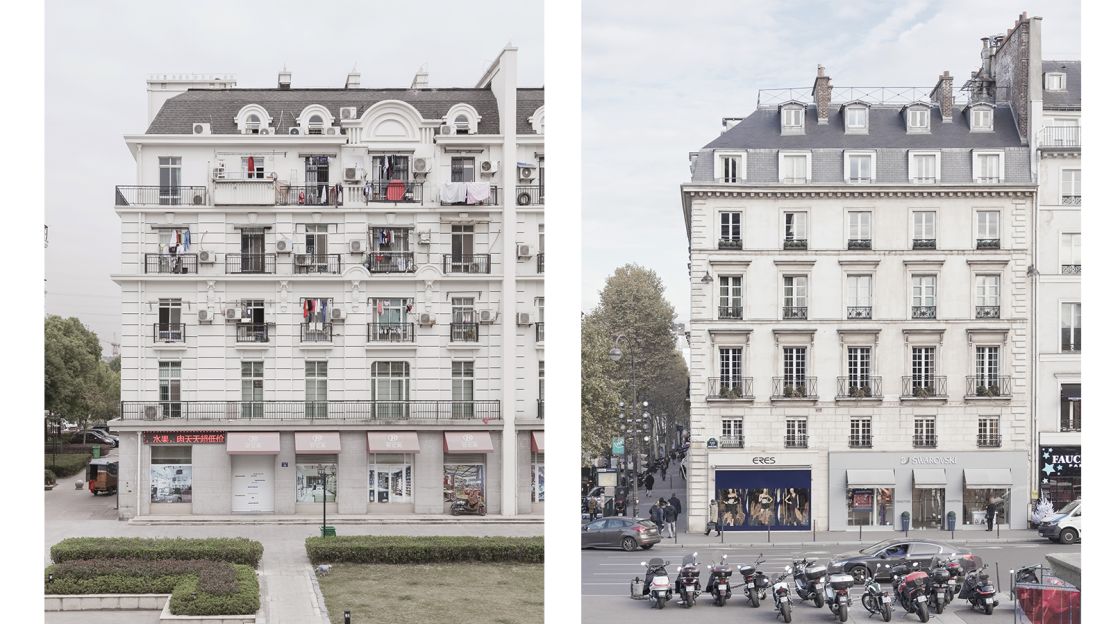
Prost first discovered Tianducheng via the video for “Gosh,” a track by UK musician Jamie xx.
As a Paris resident, he was simultaneously amused and fascinated to learn his hometown had been recreated across the world.
“I was interested in this because I’m French, so I found it very funny to pick up […] some cultural heritage from my country, and recreate it there,” he says.
Prost was also inspired by an article by Rosecrans Baldwin, in which the journalist visited all the American towns called Paris – exploring whether people living there felt a connection to their town’s namesake.
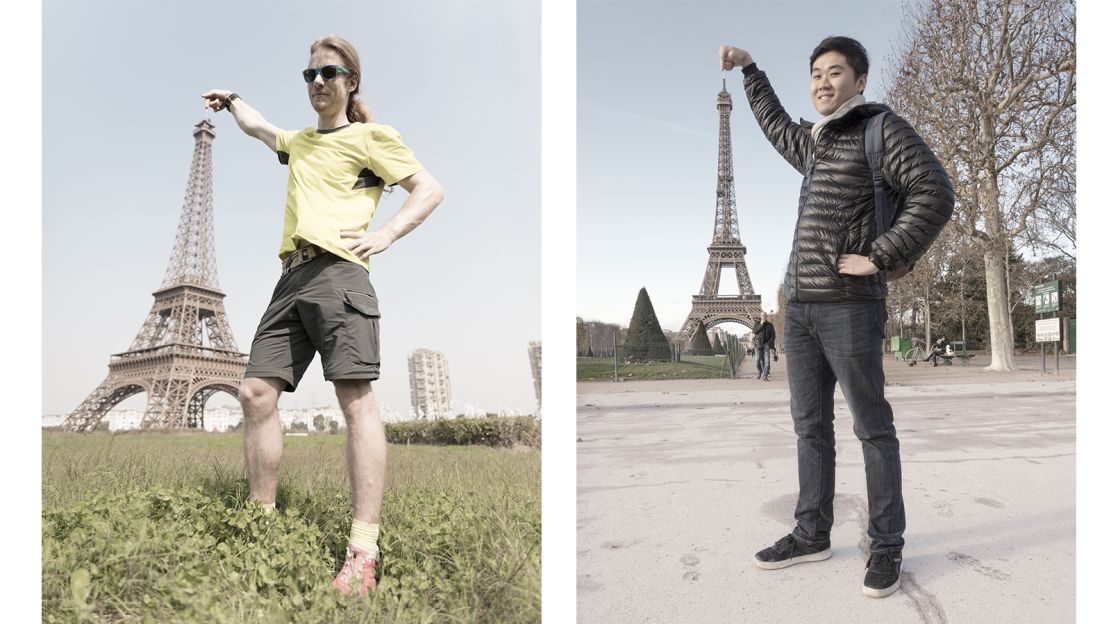
Wondering what it would be like to live in a town modeled, after one of the most famous cities in the world, he did some research and discovered there are several places in China that have consciously replicated the architectural styles of European countries – a phenomenon known as “duplitecture.”
“I read this and it filtered through my brain somehow,” says Prost.
Further inspiration came from the concept of Stendhal Syndrome, a term coined for when tourists visit a well-known destination and are overwhelmed by incredible works of art. Linked is the concept of “Paris Syndrome” – when expectations of the City of Light don’t match reality.
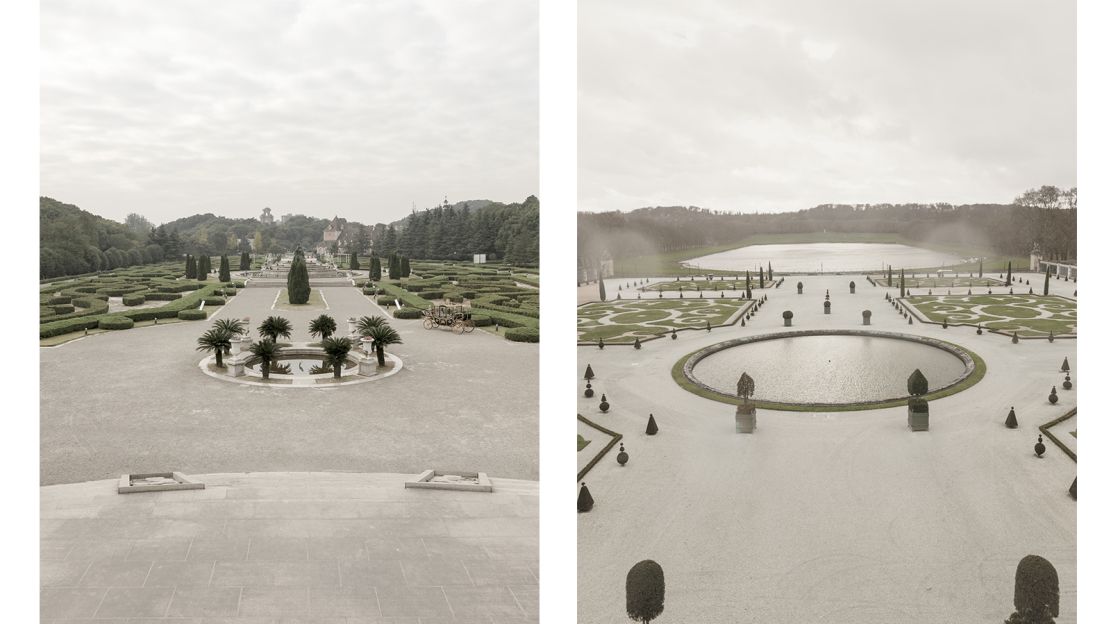
Prost could relate to this – he recalls the first time he visited Venice.
“Once I got out of the train station, I felt very strange because lots of the scenery I had seen before,” he says. “I grew up seeing lots of images from Venice.”
The photographer was intrigued by the idea of taking these concepts to another level – what would it be like to visit a “fake” Paris as a Parisian, rendering the familiar unfamiliar?
Reality versus replica
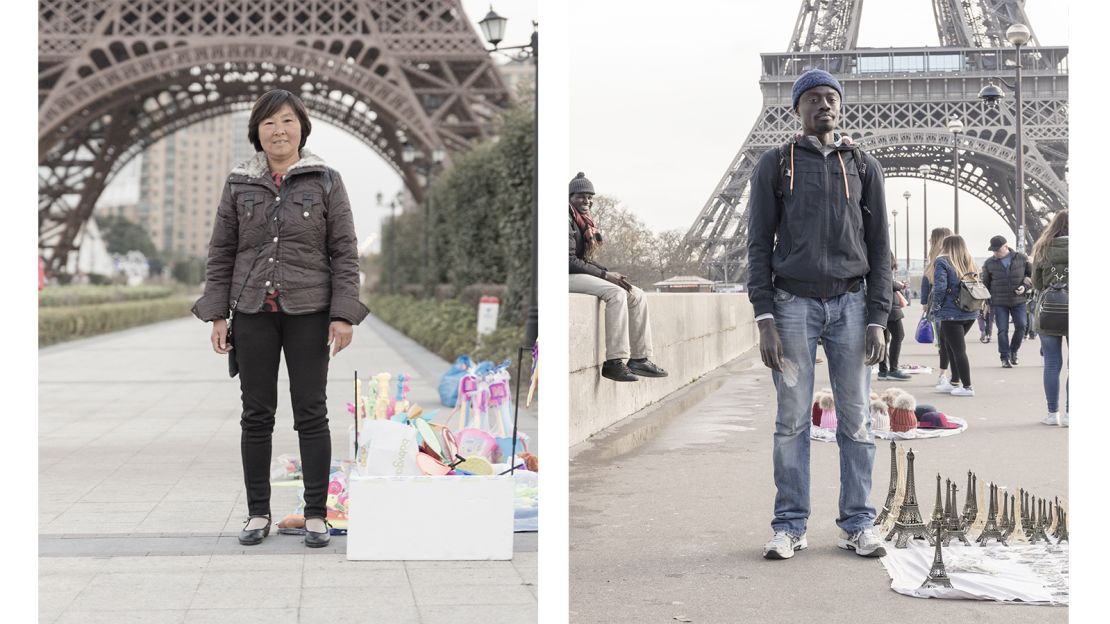
Tianducheng is meticulously recreated and in Prost’s photos it’s not always easy to guess which is the “real” version.
“The first thing I saw was the Eiffel Tower and it looked quite impressive,” he recalls.
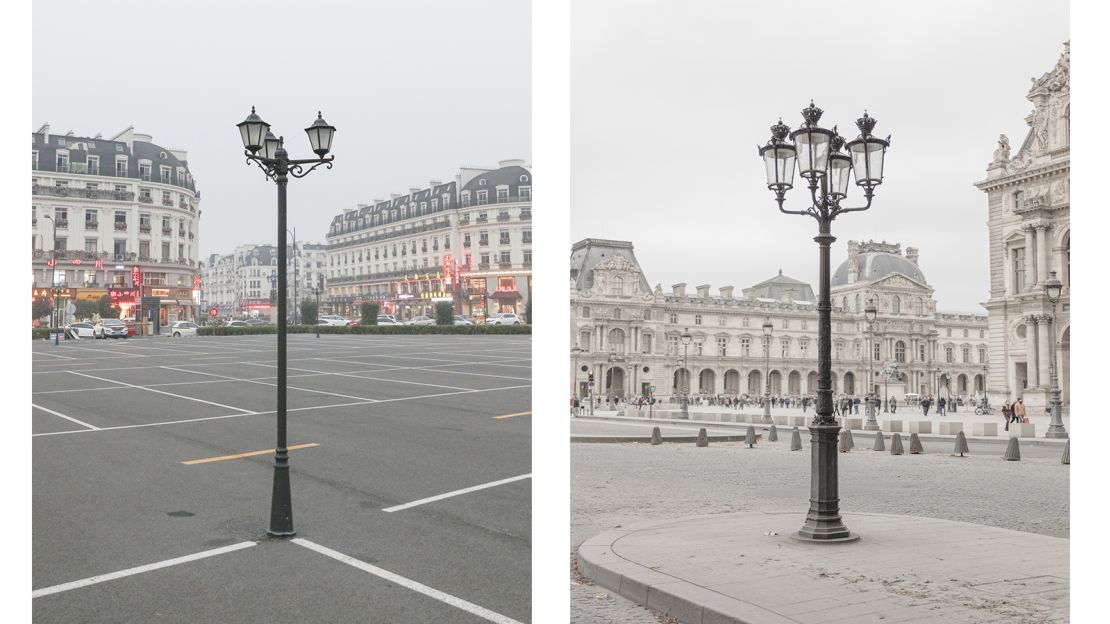
The photographer explored Tianducheng, taking hundreds of photographs of recreated locations from different angles. He took the corresponding Paris photos later, back home in France.
He says he admired the attention to detail in Tianducheng’s replica – particularly the Parisian-style streets and avenues.
“For example they respected the number of floors, the fact the ground floor is supposed to be shops and the second floor belongs to the shop. It’s the same in Paris,” he explains.
There were some key differences. “Of course it was very strange because it’s pretty new, so there’s not the oldness that some stones can have in Paris.”
The people and the place
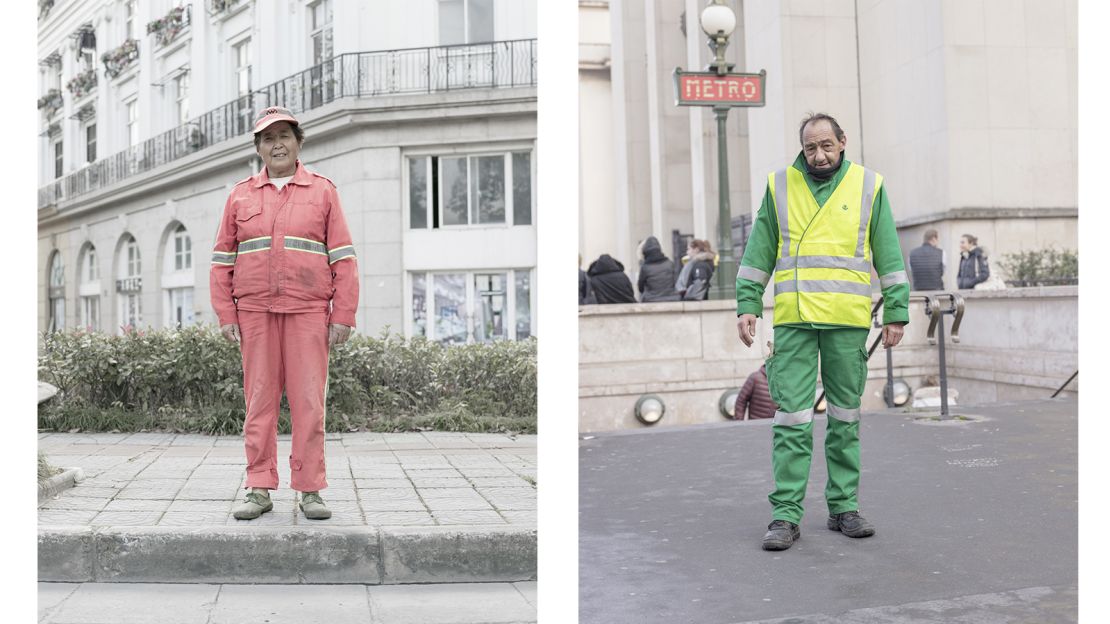
Prost was particularly fascinated by how Tianducheng wasn’t just a tourist attraction. It’s a real, functioning town, in which people live and work.
“For example in Las Vegas it looks more like an attraction park, with a hotel,” he says.
During his time in Tianducheng, Prost chatted to people to gauge whether residents were affected by their town’s unusual link to Paris.
“From what I saw, people lived there as they would live anywhere else in China,” he says. “It feels like any other little town in China.”
“I wanted to see how the people would live there and compare it to Paris – to see between those two places that are many 15,000 kilometers far away – to see how they would live in the same environment,” he adds.
Snapshots of a city
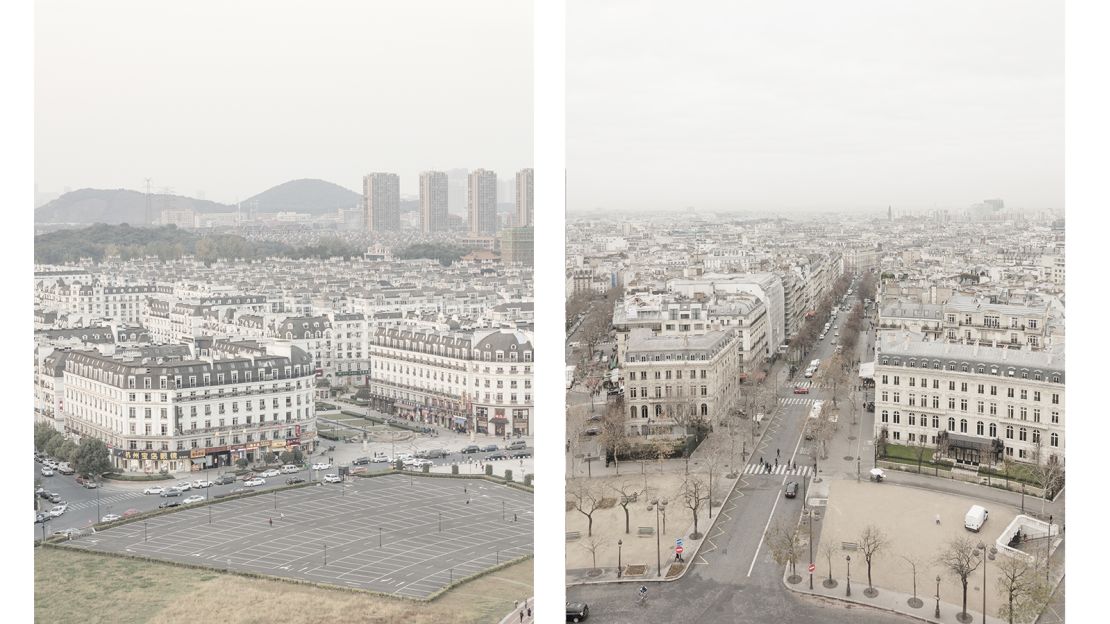
Prost spoke to people in the city, from his Airbnb host to cleaning staff, about their view of Tianducheng.
“They liked the place, they liked the Eiffel Tower, they liked the avenues. But I’m not sure it’s a complete choice, I’m not sure they came especially because it’s Parisian,” reflects Prost.
“I think for citizens, I would say they are happy, but they would be happy somewhere else as well.”
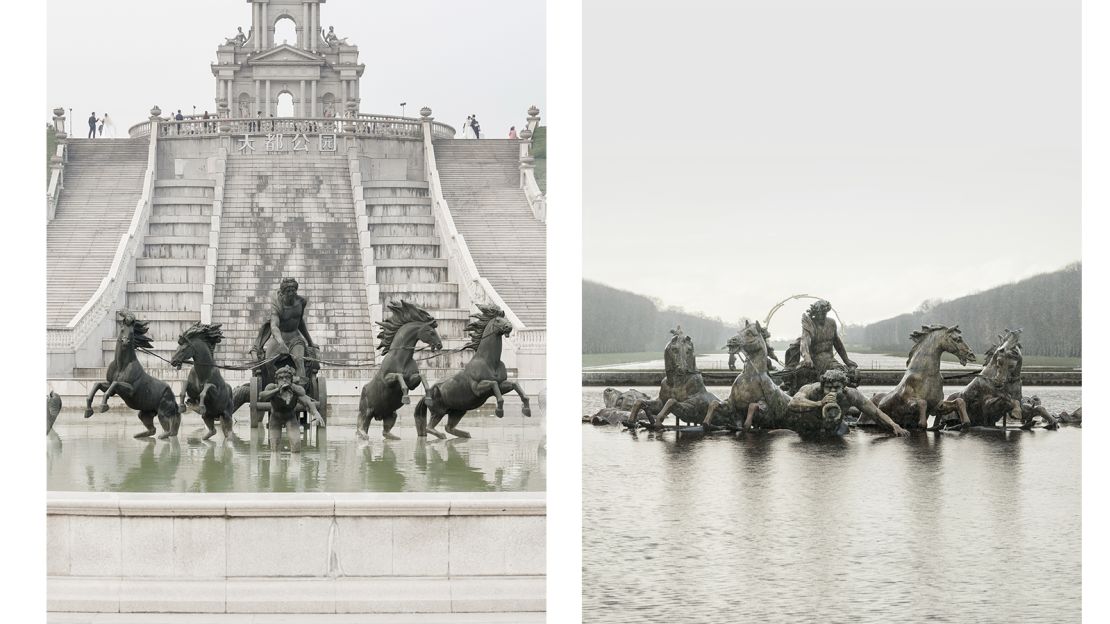
Before visiting, Prost wondered if Tianducheng may have adopted Parisian culture – but he says that wasn’t the case.
“What I quite liked in the end is, the place is made by the people living in the place,” says Prost. “To me, what I saw there, was people just living there as they would live anywhere else.”
Prost is aware that his work presents a snapshot of life in Tianduchdong – not the full story. His peek into life in this Parisian replica was brief and fleeting.
“Let’s see maybe in 50 years who is going to live there, maybe it’s going to be a completely different person and they will make the place probably completely different,” says Prost.



![<strong>Recreated city:</strong> Tianducheng piqued Prost's interest -- he found it both amusing and fascinating that Paris had been recreated across the world: "I was interested in this because I'm French, so I found it very funny to pick up [...] some cultural heritage from my country, and recreate it there," he says. <em>Pictured here: Left -- Parisian block replica in Tianducheng, China. Right -- Parisian block in Paris.</em>](https://media.cnn.com/api/v1/images/stellar/prod/180130155058-francois-prost-china-block-perspective-3.jpg?q=w_1600,h_900,x_0,y_0,c_fill/h_447)

















